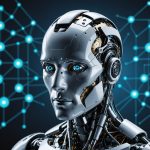AI employees transform business operations by handling tasks with speed and precision, freeing human teams for higher-level work. Personalized and adaptable, these digital workers integrate seamlessly across platforms, delivering 24/7 support in multiple languages. By automating roles from marketing to customer service, businesses gain efficiency and scalability without expanding headcount, making AI-powered assistants a practical solution for modern growth challenges.
Understanding AI Employees and Their Business Applications
AI employees tailored to your business needs are virtual tools that perform tasks generally handled by humans, such as customer support, content creation, and social media management. Unlike traditional roles, these AI integrations operate continuously without fatigue, offering businesses round-the-clock service.
A lire également : How can machine learning be used to improve the efficiency of renewable energy systems?
They excel at automating routine tasks, reducing operational costs, and boosting efficiency. For example, Sintra’s AI helpers like Cassie and Soshie automate customer interactions and social media scheduling, saving time and resources.
These AI solutions can adapt through learning capabilities, improving accuracy in communication and workflows. Their integration with tools like Gmail, Notion, and Facebook streamlines processes further.
Dans le meme genre : How to optimize the performance of AI-driven sentiment analysis tools?
The benefits include faster response times, improved engagement metrics, and the ability to scale rapidly. As businesses increasingly leverage AI, understanding how to effectively deploy these AI employees tailored to your business needs is crucial to staying competitive and maximizing growth.
Core Features and Functionality of AI Employees
Task Automation and Performance Analytics
AI workforce solutions consistently excel at automating routine tasks—streamlining social media management, customer support, data analysis, and more. Their AI role automation reduces manual workload, while real-time AI employee performance analytics and predictive analytics for employee performance provide transparent, measurable improvements. Notably, automated employee experience platforms and continuous AI employee feedback systems enable rapid adaptation. With machine learning in employee engagement, organizations benefit from AI-driven performance reviews and receive actionable insights that help reduce employee turnover.
AI tools for employee schedule generation, AI-powered scheduling automation, and digital workforce management platforms boost productivity across various roles. In several industries, case studies highlight striking efficiency gains—showcasing the impact on reducing costs and enhancing service levels through AI-enhanced leadership development and AI-driven employee skill development.
Integration with Business Tools and Ecosystems
Seamless AI integration in HR practices is vital, allowing the AI workforce to connect with business tools like Gmail, Notion, Facebook, and Google Calendar. These capabilities facilitate centralized management and support AI employee connect 24/7 services, AI employee collaboration enhancement, and AI-enabled workforce optimization. The adaptability of AI-driven job matching technology, AI-driven employee engagement surveys, and best practices for AI employee implementation ensure workflows remain agile and custom-fit for evolving business requirements.
Personalization and Learning Capabilities
Personalization thrives when AI employees harness organization-specific data for AI employee experience personalization. These virtual assistants continually learn—leveraging AI employee dashboard development, AI employee sentiment analysis, and natural language processing in employee communications. As a result, AI virtual assistants for employees improve over time, adapting to distinct business settings, supporting AI to streamline HR workflows, and enabling adaptive AI support for employee mental health and wellbeing. Adaptive learning also expands possibilities for AI in employee onboarding process and virtual employee onboarding, driving sustainable organizational growth.
Business Use Cases and Real-World Examples
Content Creation and Marketing Automation
Businesses implementing AI employees witness a marked increase in marketing efficiency. AI-generated content, such as social media posts, email campaigns, and SEO blog articles, enables teams to post more regularly without increased manual input. Notably, Marblism and Sintra harness AI automation to speed up turnaround times, generate targeted advertisements, and ensure consistent branding. This automation also streamlines digital workforce management by using AI employee role automation and AI employee dashboard development for planning, tracking, and content review. Teams benefit from continuous AI employee feedback systems, as the AI monitors effectiveness, optimizes for engagement, and produces analytics-driven performance reports.
Customer Support and Lead Generation
AI chatbots and virtual assistants ensure 24/7 customer communication, using natural language processing in employee communications to resolve routine inquiries and personalize responses. AI tools for employee schedule generation allow seamless handoff between human staff and digital agents, minimizing manual intervention. These solutions, such as those found at Marblism, enhance AI employee connect 24/7 services and leverage AI to reduce employee turnover by resolving concerns efficiently. The adoption of AI-driven employee engagement surveys gives insight into service quality and improves lead qualification through AI-driven job matching technology.
Operational Optimization and Cost Savings
AI employees support AI-powered scheduling automation and AI employee handbook creation to reduce administrative burden. Automating report generation, compliance tracking, and workload balancing transforms digital workforce management practices, driving efficiency and productivity. AI-enabled workforce optimization and AI employee sentiment analysis empower teams to quickly assess areas for improvement, reduce costs, and better allocate resources.
Challenges, Ethical Considerations, and Adoption Strategies
Ethical and Privacy Concerns in AI Employee Deployment
Precision on core issues around AI employee use: Privacy, security, and transparency reign as top priorities. The implications for ai employee data security and the broader realm of AI ethics cannot be understated—especially with sensitive information managed by AI-powered scheduling automation or AI-based employee monitoring tools. AI employee trust and transparency becomes fundamental when deploying AI in employee onboarding or ongoing feedback systems. Regulations, including GDPR, require strong AI in employee data compliance measures and clear employee consent practices to assure protection of privacy rights and limit AI monitoring software privacy concerns. Addressing AI bias in predictive analytics for employee performance and ensuring AI anti-bias systems for employee reviews help foster digital workforce management fairness.
Implementation Challenges and Solutions
Integrating AI-driven performance reviews and employee experience platforms often reveals barriers, such as legacy system incompatibility or employee resistance. Solutions focus on best practices for AI employee implementation: comprehensive AI readiness assessments for HR departments, robust AI-powered employee feedback loops, and clear training on adopting AI-powered scheduling automation and workforce analytics tools. Ongoing optimization requires continuous monitoring with AI employee performance analytics and promptly resolving concerns about AI employee monitoring tools.
Future Outlook and Emerging Trends
The future of AI in workforce management promises greater integration of AI-driven talent management systems, advanced AI mentorship programs for employees, and enhanced AI employee wellbeing programs. As natural language processing in employee communications matures, AI-enabled workforce optimization will transform employee engagement strategies, career pathing, and diversity analytics. Over the next decade, expect AI to deeply influence organizational culture, driving innovation in employee support, inclusivity, and automation across HR and operations.





